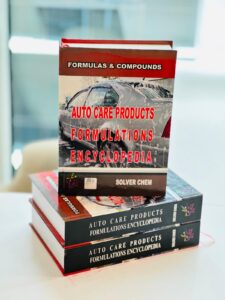
A radiator stop leak sealer (or coolant leak sealer) is a chemical additive poured into a vehicle’s cooling system designed to temporarily or semi-permanently plug minor leaks in the radiator, heater core, engine block, cylinder head, gaskets, and hoses.
These products typically contain microscopic particles (such as fibrous materials, ceramics, sodium silicate, or fine metals like aluminum/copper) suspended in a liquid carrier.
How It Works
- Circulation: The product is poured into the radiator or coolant reservoir and circulates with the coolant throughout the system.
- Locating the Leak: When the coolant encounters a hole, crack, or porous spot, the fluid is forced out, but the particles in the stop leak are too large to pass through.
- Sealing Action: The particles accumulate and jam at the point of the leak. In some formulations (like those containing sodium silicate, or “liquid glass”), the heat of the engine or exposure to air causes the sealant material to cure and harden, forming a durable plug.
Key Applications
Radiator stop leak sealers are generally considered a temporary fix or a last resort for small, non-critical leaks, but their primary applications include:
- Emergency Roadside Repair:
- The most common use is to stop a minor coolant leak that occurs while driving, allowing the driver to safely reach a repair shop or get home without causing catastrophic engine damage from overheating.
- Sealing Minor System Leaks:
- Pinhole Leaks in the Radiator: They are highly effective on small, slow leaks in the radiator fins or end tanks, often caused by vibration, corrosion, or stone chips.
- Weeping Gaskets and Seals: They can seal minor leaks around the water pump seal, hoses, or loose hose clamps where a component has a slight, persistent drip.
- Heater Core Leaks: They are frequently used as a temporary solution for a leaking heater core, as replacing this component is often a very expensive and labor-intensive job.
- Repairing Porosity in Engine Castings:
- Certain heavy-duty formulations are used to seal small stress cracks or minor porosity in the engine block or cylinder head that can cause coolant to leak internally.
- Preventive Maintenance (Manufacturer Use):
- Some vehicle manufacturers (historically, notably GM and Subaru) have used sealant tablets or specialized additives from the factory as a preventative measure to seal minor manufacturing imperfections in the cooling system.
Important Considerations
While effective for small leaks, stop leak products have drawbacks:
- Not a Permanent Fix: They are typically a temporary solution; the leak may eventually return, and the correct mechanical repair (e.g., replacing a radiator or gasket) should be pursued.
- Risk of Clogging: The biggest risk is that the particles may circulate and clog other critical, narrow passages, especially in the heater core (which causes poor heat) or the radiator tubes, reducing cooling efficiency and potentially leading to overheating.
-
Not for Major Leaks: They cannot fix large cracks, split hoses, or major component failures
👁️ Görüntülenme: 2




